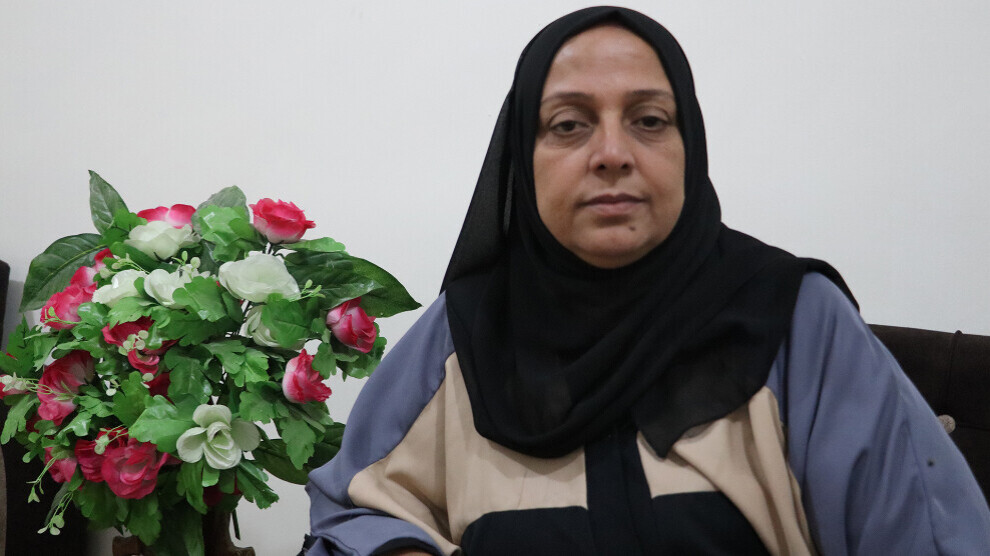Zenubya carries out awareness campaigns to prevent suicides
Zenubya is conducting awareness campaigns to prevent suicides, especially those caused by pressures and forced marriages faced by women. The community stresses that suicide is not a solution and provides women with support and alternative solutions.

NUR EL-AHMED
Raqqa – Suicide is considered one of the most serious social problems due to the risks it poses from family breakdowns and individual traumas, as well as the damage it inflicts on society. Reports indicate that suicide cases have increased in the regions of North and East Syria due to the effects of war and economic crises. In response to this rise, the reconciliation committees of the Raqqa Zenubya Women’s Community are conducting awareness campaigns to draw attention to the causes of suicide and emphasize that it is not a solution.
“There is an increase in suicides”
Nawal Jumaa, head of the Reconciliation Office of the Raqqa Zenubya Women’s Community, said that they closely monitor the difficulties women face, noting that in recent times they have observed a significant increase in suicide cases, particularly among women.
Nawal Jumaa said: “In recent years, compared to previous years, we have seen a large number of women attempting suicide. The phenomenon of suicide is one of the special methods of warfare targeting women. The 21st century is regarded as the century of women’s freedom and their uprisings against slavery. Women have achieved countless successes and now play an equal role with men in every aspect of life. In our regions, equality between men and women has been achieved in every sphere of life. However, in the face of these achievements by women, the male-dominated mentality, unwilling to lose its authority in society, seeks to overshadow women’s successes by increasing psychological pressure on them. This mentality, targeting women, is deepening these pressures, spreading violence, and paving the way for the deaths of women.”
“Psychological pressures rooted in the patriarchal system”
Commenting on the reasons that drive women to suicide, Nawal Jumaa explained that the cases they handle reveal that women often see suicide as a way out of the psychological pressures stemming from the patriarchal order.
She continued: “Women struggle to overcome this oppressive system, which, under the guise of traditions and customs, restricts their roles and existence, prevents them from working, receiving an education, or pursuing a hobby they love. This situation is part of a conscious effort to hinder women’s intellectual development and liberation, and to prevent their cultural or academic achievements from surpassing those of men in work and life.”
“They face various accusations”
Highlighting that this societal attitude marginalizes women, Nawal Jumaa said: “Women are often accused of not being strong enough or of being too weak to take responsibility.”
She also emphasized that another major factor pushing women toward suicide is underage marriages, forced marriages, and traditional forms of marriage such as berdel and hijar that women are compelled to endure.
Nawal Jumaa added: “These forms of marriage make women’s living conditions even more difficult. Problems with their spouses keep increasing. When they want to divorce, this right is taken away from them under pretexts such as ‘family honor’ and ‘shame.’ They are expected to endure violence for the sake of their children and families. But problems are not solved this way; on the contrary, they deepen. In this despair, women begin to see either suicide or substance use as a way out.”
Domestic violence
Nawal Jumaa stressed that domestic violence is also a significant risk factor: “Women are subjected to physical and sexual violence, insults, beatings, and humiliation. They are turned into tools for housework and childcare, and their labor is rendered invisible. Many of them work, but even their earnings are seized. While all these pressures accumulate, there are very few people who hear their voices. This drives women into a dead end,” she said.
Drawing attention to a case reported to the Zenubya Women’s Community, Nawal Jumaa continued: “A few days ago, we received a case involving a woman who attempted suicide. This woman, a mother of three, had been driven into a severe deadlock due to her husband’s drug addiction and the physical and psychological violence he inflicted, especially when he could not obtain drugs. Being constantly beaten and humiliated eventually pushed her to start using drugs herself. Finally, overwhelmed by despair and pressure, she attempted suicide to end her life.”
“We carry out awareness campaigns to prevent suicides”
Stating that suicide is not a solution, Nawal Jumaa said: “It affects the lives of children and families, leading to many negative consequences such as family breakdown and psychological trauma. The Zenubya Women’s Community monitors this phenomenon, analyzing its roots and ed statements condemning the dangers and consequences of suicide. In addition, through our committees in villages and rural areas, we launched campaigns and distributed brochures to raise awareness among women and society about the negative effects of suicide and the dangers of underage marriages.”
“Breaking the chains of slavery”
Emphasizing that they strive to reach and educate as many women as possible, Nawal Jumaa said: “This way, they will be able to change their lives, break the chains of slavery, and attain their freedom. I call on society to become more aware of the psychological pressures women are subjected to, which can lead to suicide. Suicide is neither a solution nor a path to salvation. Women need to think of alternative solutions for a better life.”
